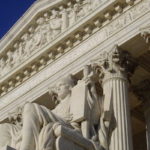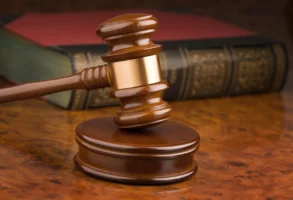
Published March 10, 2023
This morning I broke news in this tweet thread of how Stanford law school students yesterday shouted down Fifth Circuit judge Stuart Kyle Duncan at a Federalist Society event. Judge Duncan was scheduled to speak on the topic of “The Fifth Circuit in Conversation with the Supreme Court: Covid, Guns, and Twitter.” The students’ disruption made it impossible for him to be heard.
The protesting students had no objection, so far as I’m aware, to the topic that Judge Duncan would be addressing. Instead, according to an email that Tirien Steinbach, Stanford’s associate dean for diversity, equity, and inclusion (DEI), sent out in advance of the event, they charged that he “repeatedly and proudly threatened healthcare and basic rights for marginalized communities, including LGBTQ+ people, Native Americans, immigrants, prisoners, Black voters, and women.” Steinbach herself quoted the charge with evident approval.
Stanford University’s stated policy on free speech (which governs the law school) strikes a sensible line. Stanford “firmly supports the rights of all members of the University community to express their views or to protest against actions and opinions with which they disagree,” but:
It is a violation of University policy for a member of the faculty, staff, or student body to:
Prevent or disrupt the effective carrying out of a University function or approved activity, such as lectures, meetings, interviews, ceremonies, the conduct of University business in a University office, and public events.
Five law-school administrators, a student tells me, were present at the event. But instead of advising the students that they were violating university policy and asking them either to stop disrupting the event or to leave, they did nothing.
Until, that is, Steinbach took the microphone for around six minutes in order to—believe it or not—deliver prepared remarks chastising Judge Duncan. Please watch the whole thing:https://player.vimeo.com/video/806801455?h=16c79baa14Judge Duncan event at Stanford from Ethics and Public Policy Center on Vimeo.
In the course of her prepared remarks, Steinbach paid lip service to Stanford’s policy on free speech. But she repeatedly questioned whether the policy was sound and should be reconsidered. Worse, she used the platform she seized from him to contend, ludicrously, that he “literally denies the humanity of people.” Showing no understanding of free-speech principles, she posited that Judge Duncan had the duty to offer remarks that would be so valuable as to offset the harm that his mere presence was inflicting on the community.
Judge Duncan then tried to continue with the event, but further disruptions, I’m told, brought a quick end to it.
If Stanford law school genuinely cares about free speech, Tirien Steinbach should soon be looking for another job.
Edward Whelan is a Distinguished Senior Fellow of the Ethics and Public Policy Center and holds EPPC’s Antonin Scalia Chair in Constitutional Studies. He is the longest-serving President in EPPC’s history, having held that position from March 2004 through January 2021.












